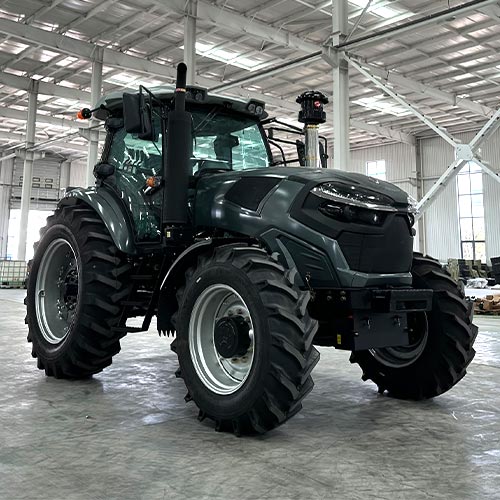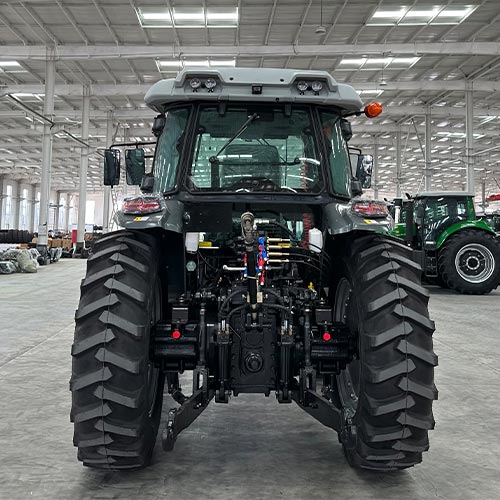Introduction
When it comes to purchasing a farm tractor, navigating the price landscape can be daunting. The variability in prices can be influenced by factors like brand, model, features, and seller markup. In this guide, we’ll delve into valuable tips for evaluating farm tractor prices to ensure you get the best deal possible.
Understanding Price Determinants

Before diving into specific prices, it’s crucial to understand the factors that influence farm tractor prices. These include:
- Brand Reputation: Well-known brands often come with a premium price tag due to their reputation for quality and reliability.
- Engine Power: Tractors with higher horsepower ratings typically command higher prices.
- Features and Attachments: The inclusion of advanced features and attachments can significantly impact the price.
- Age and Condition: Used or older models may come at lower prices but could require more maintenance in the long run.
Researching Market Prices
To gain a comprehensive understanding of the current market dynamics, it’s advisable to conduct thorough research across multiple channels. Start by exploring prices offered by reputable dealerships, both online and offline. Dealerships often provide a range of tractor models with varying specifications and price points.
In addition to dealerships, online marketplaces offer a vast array of options, allowing you to compare prices, features, and seller reputations from the comfort of your own home. Platforms such as eBay, TractorHouse, and MachineryTrader are popular choices for purchasing agricultural equipment.
Furthermore, attending auctions can provide valuable insights into market trends and pricing dynamics. Auctions offer the opportunity to bid on both new and used farm tractors, often at competitive prices. However, it’s essential to exercise caution and thoroughly inspect any equipment before making a purchase at an auction.
By comparing prices from these diverse sources, you can gain a comprehensive overview of the market, identify competitive pricing trends, and ultimately make an informed decision when negotiating the purchase of a farm tractor.
Negotiation Strategies
Negotiating the price of a farm tractor requires tact and preparation. Consider these strategies:
- Gather Comparative Data: Use your research to justify your offer and negotiate from an informed position.
- Highlight Weaknesses: Point out any flaws or maintenance requirements that could justify a lower price.
- Be Willing to Walk Away: Demonstrating that you’re prepared to walk away can sometimes encourage the seller to meet your price.
Considering Total Cost of Ownership

When assessing the cost of a tractor, it’s vital to adopt a holistic approach that considers not only the initial purchase price but also the long-term expenses associated with ownership. Beyond the upfront cost, prospective buyers should factor in various ongoing expenses to make a well-informed decision.
Maintenance is a significant ongoing expense that should not be overlooked. Regular servicing, parts replacement, and repairs are essential to keep the tractor operating smoothly and prevent costly breakdowns. Additionally, the availability and cost of spare parts should be taken into account when evaluating the overall maintenance expenses.
Furthermore, fuel consumption plays a crucial role in the total cost of ownership. Tractors with higher fuel efficiency may command a slightly higher upfront price but can result in significant savings over time, particularly for operations with extensive fieldwork.
Another essential consideration is insurance coverage. While insurance premiums may vary depending on factors such as the tractor’s value, usage, and location, it’s essential to budget for this recurring expense to protect against unexpected liabilities and damages.
Utilizing Financing and Incentives
Explore financing options and manufacturer incentives that may be available to help offset the cost of purchasing a farm tractor. Low-interest loans or rebates can make higher-priced models more affordable in the short term.
| Financing Option | Description |
|---|---|
| Low-Interest Loans | Many financial institutions offer low-interest loans specifically tailored to agricultural equipment purchases. These loans typically have competitive interest rates and flexible repayment terms, making them an attractive option for financing a farm tractor. |
| Manufacturer Rebates | Manufacturers often provide rebates or cash incentives to incentivize tractor purchases. These rebates can significantly reduce the upfront cost of a tractor, making higher-priced models more affordable in the short term. Manufacturers may offer rebates as part of promotional campaigns or seasonal deals, so it’s essential to keep an eye out for available incentives when considering a purchase. |
Conclusion
When embarking on the journey of evaluating farm tractor prices, it’s imperative to delve into a multitude of factors that contribute to the overall value proposition. Beyond merely looking at the sticker price, discerning buyers should pay heed to the brand reputation, as it serves as a hallmark of quality and reliability. Established brands often justify a slightly higher upfront cost by offering superior engineering, durable construction, and extensive dealer support networks.
However, the assessment doesn’t stop there. A comprehensive evaluation necessitates a deep dive into the total cost of ownership, encompassing not only maintenance and repair expenses but also fuel consumption, insurance premiums, and potential depreciation. While a tractor with a lower purchase price may seem appealing initially, it’s essential to consider the long-term implications of ownership.
In essence, evaluating farm tractor prices is a multifaceted endeavor that demands careful consideration of numerous variables. By conducting thorough research, implementing effective negotiation strategies, and taking into account long-term expenses, buyers can ensure they make an informed decision and secure the best possible deal on their farm tractor purchase.
FAQ
Are there specific times of the year when farm tractor prices are lower?
Prices may fluctuate seasonally, with potential discounts during offseasons or end-of-year clearance sales.
How much should I budget for ongoing maintenance and repairs?
Maintenance costs can vary depending on factors like tractor age, usage, and condition. It’s wise to budget a percentage of the tractor’s purchase price for annual maintenance and repairs.
Are there any online resources for comparing farm tractor prices?
Yes, several online platforms offer tools for comparing tractor prices, including marketplaces, dealer websites, and agricultural equipment valuation guides.
What role does dealer markup play in farm tractor prices?
Dealers may apply markups to cover overhead costs, profit margins, and value-added services. It’s essential to compare prices from multiple dealers to ensure competitiveness.

